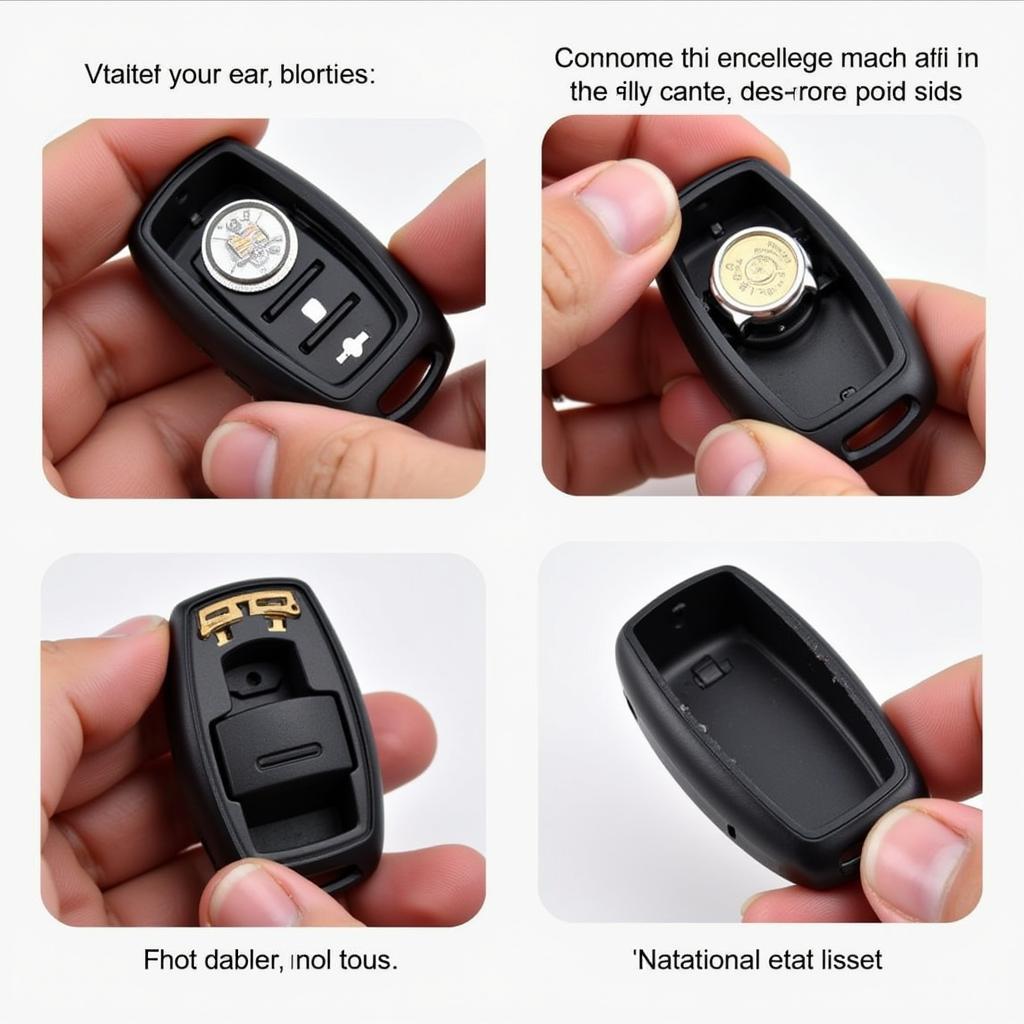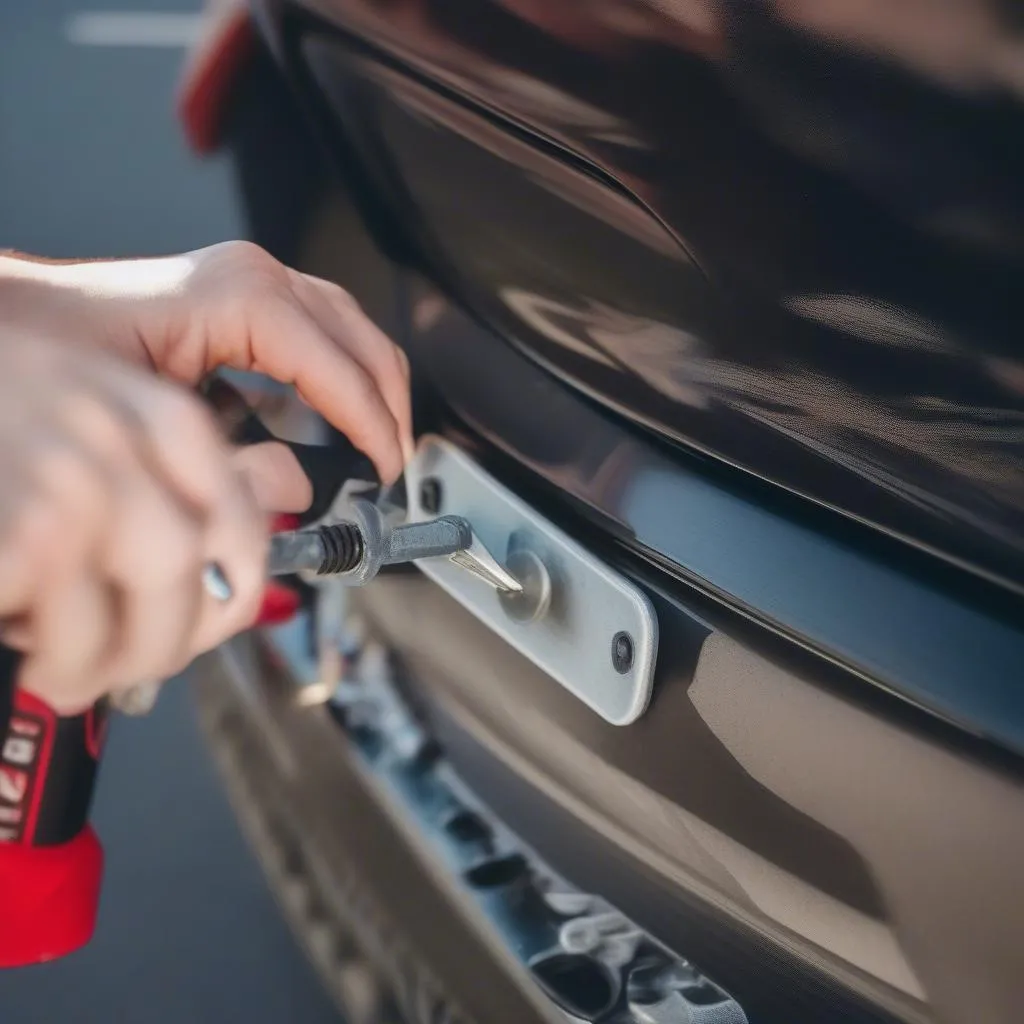If you’re experiencing grinding brakes in your 2014 Honda Accord with no warning sign, you’re in the right place. This issue can be unsettling and potentially dangerous, so understanding the causes and solutions is crucial. We’ll explore common reasons why your 2014 Honda Accord’s brakes might be grinding without triggering any warning lights, and we’ll guide you through diagnostic steps and solutions, even offering some remote software solutions that might address the issue.
Why are My 2014 Honda Accord Brakes Grinding with No Warning Light?
Several factors can cause brake grinding without illuminating a warning light. It’s important to investigate each possibility to ensure your safety and prevent further damage. A common culprit is worn brake pads. While the wear indicators on your brake pads should trigger a warning light, sometimes these indicators can fail or wear unevenly, leading to grinding without the alert. Another possibility is a seized brake caliper. This can cause the brake pads to constantly rub against the rotor, resulting in a grinding noise. Debris trapped between the brake pad and rotor can also cause grinding. This can be anything from small stones to rust particles. Finally, a warped rotor can cause uneven contact with the brake pads, leading to grinding noises.
Diagnosing the Grinding Brakes
Diagnosing the problem involves a systematic approach. First, listen carefully to the grinding noise. Does it happen constantly, or only when braking? If the grinding occurs only when braking, it likely points to an issue with the brake pads, rotors, or calipers. Next, inspect the brake pads visually. If they appear thin or worn, they are likely the source of the grinding. If you’re comfortable doing so, you can remove a wheel to get a better view of the pads and rotors. Look for any signs of uneven wear, scoring, or debris. If you suspect a seized caliper, check for uneven brake pad wear or excessive heat on one wheel compared to the others.
How to Fix Grinding Brakes on a 2014 Honda Accord
Depending on the diagnosis, several solutions might resolve the grinding. If the brake pads are worn, they need replacement. This is a relatively straightforward job that can be done by a DIYer or a professional mechanic. If the rotors are warped or damaged, they can sometimes be resurfaced, but replacement is often the best solution. Seized calipers often require rebuilding or replacement. If debris is the cause, cleaning the brakes thoroughly should resolve the issue. In some cases, a remote software diagnostic and programming session might be able to pinpoint and resolve electronic issues related to the braking system, especially if there are underlying sensor or control module problems preventing warning lights from activating.
Remote Diagnostics and Programming for Brake Issues
As a specialist in automotive electrical engineering, I leverage remote diagnostic tools to identify and resolve issues like grinding brakes. Utilizing advanced software, I can access your 2014 Honda Accord’s onboard computer remotely to analyze sensor data, identify potential software glitches, and even reprogram certain modules. This approach offers a convenient and efficient way to address some brake-related problems without needing a physical visit to a repair shop. However, it’s important to note that physical issues like worn brake pads or warped rotors still require hands-on repair.
“Remote diagnostics can be surprisingly effective in uncovering hidden issues affecting your brakes,” explains John Miller, Senior Automotive Electrical Engineer at AutoTech Solutions. “By analyzing data streams from your car’s sensors, we can sometimes identify and rectify electronic problems that traditional methods might miss.”
Conclusion
Grinding brakes in your 2014 Honda Accord with no warning sign should never be ignored. By understanding the potential causes and utilizing the diagnostic tips outlined in this article, you can effectively address this problem and ensure your safety on the road. Remember, addressing brake issues promptly prevents further damage and costly repairs down the line. If you’re unsure about any aspect of the diagnosis or repair process, consult a qualified mechanic or explore remote diagnostic services for potential software-related solutions.
FAQ
- What is the most common cause of brakes grinding 2014 honda accord no warning sign? Worn brake pads are often the primary culprit.
- Can I drive with grinding brakes? No, it’s unsafe to drive with grinding brakes.
- How much does it cost to fix grinding brakes? The cost varies depending on the cause and necessary repairs.
- Can remote diagnostics fix grinding brakes? Remote diagnostics can identify and resolve some software-related issues, but physical repairs may still be required.
- How can I prevent brakes grinding 2014 honda accord no warning sign? Regular brake inspections and timely maintenance can help prevent grinding.
- What should I do if my brakes are grinding and no warning light is on? Stop driving immediately and have your brakes inspected by a qualified mechanic.
- Is it safe to replace brake pads myself? If you have mechanical experience, it’s possible, but consulting a professional is always recommended.


